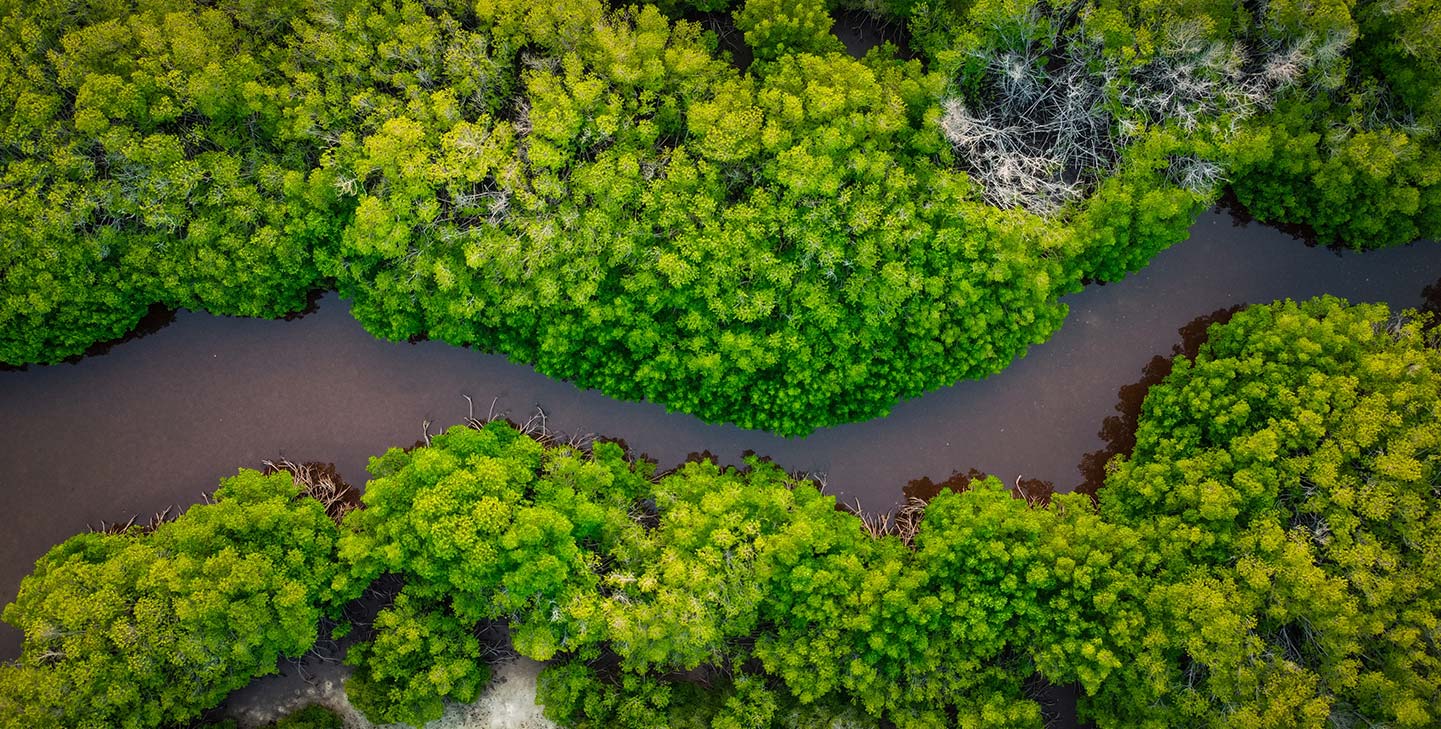

Climate Change Volunteer Programs
Help mitigate climate change.
Volunteers on a climate change program contribute to environmental activities that aim to mitigate the effects of climate change. Participants work on activities that increase the natural resilience of ecosystems like coral reefs, seagrass beds, mangroves and forests. Travel to some of the world’s most at-risk ecosystems and contribute to the long-term health of these ecosystems.
What is climate change?
Climate change refers to long-term shifts or changes in temperatures and weather patterns. In an ideal scenario, this change should be natural. However, since the 1800s there has been a rapid increase in the Earth’s temperature, which has had consequences on the entire food web.
Why should we care about climate change?
Climate change will continue to have serious impacts on forests, oceans, fish stocks and local communities. Based on recent predictions, if we continue to emit carbon at the current rate, there will be a species diversity decline of up to 25% by the end of the century due to shifting fish stocks and decreases in the quantity of fish produced.
How is climate change monitored?
Climate change is usually monitored using weather stations and by assessing the average surface temperature of the planet. Measurements of near-surface air temperature from weather stations can be combined with measurements of ocean surface temperature from ships and buoys to create a record of the planet’s surface temperature.
Filter programs


















What are different approaches to mitigate and manage climate change?
Climate change management approaches typically fall into four broad categories.
- Mitigation: Efforts to reduce our carbon footprint and reduce greenhouse gas emissions.
- Adaptation: Increasing society’s capacity to cope with changes in climate through awareness and education, sustainable living and reducing, recycling and reusing existing resources.
- Caring and conserving landscapes/seascapes and species.
- Knowledge-base expansion: Efforts to learn and understand more about the climate system, which can help support proactive management of the consequences of climate change.
How do we contribute to mitigating climate change at GVI?
We work on coral reefs and forest ecosystems which are considered sensitive to adverse conditions. They are known to absorb a lot of carbon from the atmosphere which makes them a useful early indicator of climate change. Directly protecting these ecosystems helps in mitigating climate change. We monitor these critical ecosystems and habitats (coral reefs, mangroves, seagrass and forests) and collect long-term datasets on physical factors such as temperature, currents, wind speed, and salinity, as well as ecological factors such as herbivore numbers and predator numbers, and anthropogenic factors such as fishing pressure or logging in the forest.
Key climate action volunteer activities include:
- Running programs that focus on coral reefs and forest ecosystems.
- Encouraging participants to adopt sustainable lifestyles.
- Reducing meat consumption on our hubs.
- Reducing, recycling and reusing waste on our hubs.
- Adopting a carbon management policy.
- Making all our hubs carbon neutral.
- Working towards strengthening policies for climate change.
We also focus on coastal islands, biosecurity and sustainability in small island nations (like Fiji, Seychelles and Madagascar) who are on the frontline of climate change as they face rising sea levels, flooding, coastal erosion and warming ocean temperatures.
What activities take place on a GVI climate change volunteer program?
When it comes to climate change, a few of the world’s habitats and ecosystems are more impacted than others. We use strong scientific approaches to mitigate the impact of climate change.
These activities include:
- Supporting activities that increase the natural resilience of coral reefs, seagrass beds, mangroves and forest ecosystems.
- Long-term monitoring of coral reefs, seagrasses, mangroves and forest ecosystems.
- Supporting conservation management activities.
What kind of tasks will be performed by participants on a climate change program?
- Assisting with monitoring surveys.
- Data entry and organisation.
- Beach cleanup activities.
- Learning about and educating others about climate change.
Which partners will participants be working with?
We work with government institutions, NGOs and support activities of various partner institutes. Below are just a few examples of organisations we have partnered with on our climate change programs.
- In Seychelles we work with SPGA and assist with long-term monitoring of reefs, periodic bleaching assessment and supporting reef resilience.
- Our partners in Mexico are the National Commission of Natural Protected Areas Mexico (CONANP) and the University of Queensland’s Coral Watch program. Activities we work on here include monitoring and collecting data that contributes to the ongoing support of the Mesoamerican Barrier Reef System and monitoring the health of the reef using set parameters.
- In Madagascar we work with the Madagascar National Park and assist with monitoring of forests and plant phenology. We have also partnered with the Lemur Conservation Network to monitor occurrence, density and population estimation of three species of lemurs.
- Working with Greenfins in Thailand, we assist with citizen science research and mapping of the quantity and quality of the global reef network.
Which UN SDGs will participants be contributing towards?
- UN SDG 4: Quality Education
- UN SDG 13: Climate Action
- UN SDG 14: Life Below Water
- UN SDG 15: Life on Land
- UN SDG 17: Partnerships for the Goals
We offer climate change volunteer opportunities in six countries.
Climate change volunteering in Costa Rica
In Costa Rica our focus is on forests and jungles. The key climate issue faced by the region is that it will become warmer and drier as climate change accelerates. This could have a major impact on the environment of Costa Rica, upsetting delicate mountain cloud forests and causing a decrease in plant and animal species in a region famous for its biodiversity. For example, the golden toad, which is only found in cloud forests, became extinct in Costa Rica after successive extreme droughts in 1990. Climate change is also impacting the leatherback turtle. Rising sea levels, higher tides and increased storm events, which are more likely as the climate changes, wash away turtle nests and permanently destroy nesting beaches in the long term. The sex of a marine turtle is determined during the incubation of the egg on the nesting beach where it was laid, and the mix of males and females depends on the temperature of the sand. Hotter sand – which is consistent with global warming – leads to a disproportionately higher number of female turtles.
GVI’s work in Costa Rica includes generating a baseline database and species checklist of coastal (turtles) and forest (herpetofauna, mammals and bird surveys) associated biodiversity, assisting in local wildlife conservation efforts through providing practical support to project partners, data collection, awareness raising and habitat restoration.
Climate change volunteering in Fiji
Coral reefs, water security and sustainability are our key areas of focus in Fiji. The main climate issue identified in this region is that climate change is expected to interact with cyclones (which occur regularly in Fiji) in ways that are complex and currently poorly understood. Known risks include the effect that rising sea levels have on increasing the damage caused by cyclone-induced storm surges, and the possibility of increased wind speed and the intensity of precipitation. The effects of tropical cyclones and flooding are pushing populations into poverty.
GVI contributes to coral reef conservation and supporting local marine-protected areas. We also collect data that will help to assess the health of the reefs in Fiji.
Climate change volunteering in Madagascar
In Madagascar our projects focus on coastal areas as well as forests and jungles. The climate issues faced by the region are driven by large-scale disruptions in atmospheric circulation and are exacerbated by poor land use practices. Droughts are a common occurrence in the south of Madagascar, which is the hottest and driest part of the island, with some areas receiving less than 400 mm of rainfall each year. Shoreline erosion caused by rising sea levels is already a significant problem to the coastal ports and beaches of Madagascar. Projected temperature increases could disrupt unique and critical micro-climates and lead to significant changes to local farming systems, with implications for food security.
In Madagascar GVI is generating a baseline database and species checklist of forest-associated biodiversity (herpetofauna, mammals and bird surveys), assisting in local wildlife conservation efforts through providing practical support to project partners, data collection, awareness raising, and habitat restoration.
Climate change volunteering in Mexico
In Mexico our climate change volunteer programs focus on coral reefs. Ocean temperatures in the Gulf of Mexico and the Caribbean Sea are on track to surpass critical thresholds for coral health by 2050. Mexico’s coastal lowlands (particularly on the Yucatan Peninsula) may be vulnerable to sea-level rise. Climate-related hazards in the region include storms and flooding, which mostly occur during heavy rain seasons. Climate change is expected to have a significant impact on the Mesoamerican Barrier Reef System, ranging from coastal flooding linked to rising sea levels, to increased mass coral bleaching due to warming seas. This will affect the reef’s biodiversity and the millions of people who depend on it for their livelihoods.
GVI contributes to coral reef conservation and restoration, and supporting marine-protected areas. We also collect data that will help to assess the health of the Mesoamerican Barrier Reef System.
Climate change volunteering in Seychelles
Our climate change programs in Seychelles focus on coastal areas, mangroves and coral reefs. In 1998 some areas in Seychelles lost up to 90 percent of its coral reefs in an environmental event known as bleaching. The rise of sea levels may lead to coastal erosion which has an impact on infrastructure, especially tourism and roads. Changing sea levels could also increase salinity of the soil and aquifers, which impacts food and water supply. In the last decade extreme rainfall has caused significant agricultural losses to crops.
GVI contributes to coral reef conservation and supports marine-protected areas. We also collect data that will help to assess the health of the reefs in Seychelles.
Climate change volunteering in Thailand, Phang-Nga
In Thailand our climate change volunteer programs focus on coral reefs and coastal areas.
Research on sea-level rise in marine and coastal areas in the southern region of Thailand indicates marginal change in sea level in general. Most cases of severe droughts occur in the north and northeast regions, which account for over 80% of the country’s drought-prone areas.
GVI works with local communities to monitor the biodiversity and overall health of coastal ecosystems, and aims to reduce plastic pollution through regular beach cleans.
Filter programs
























